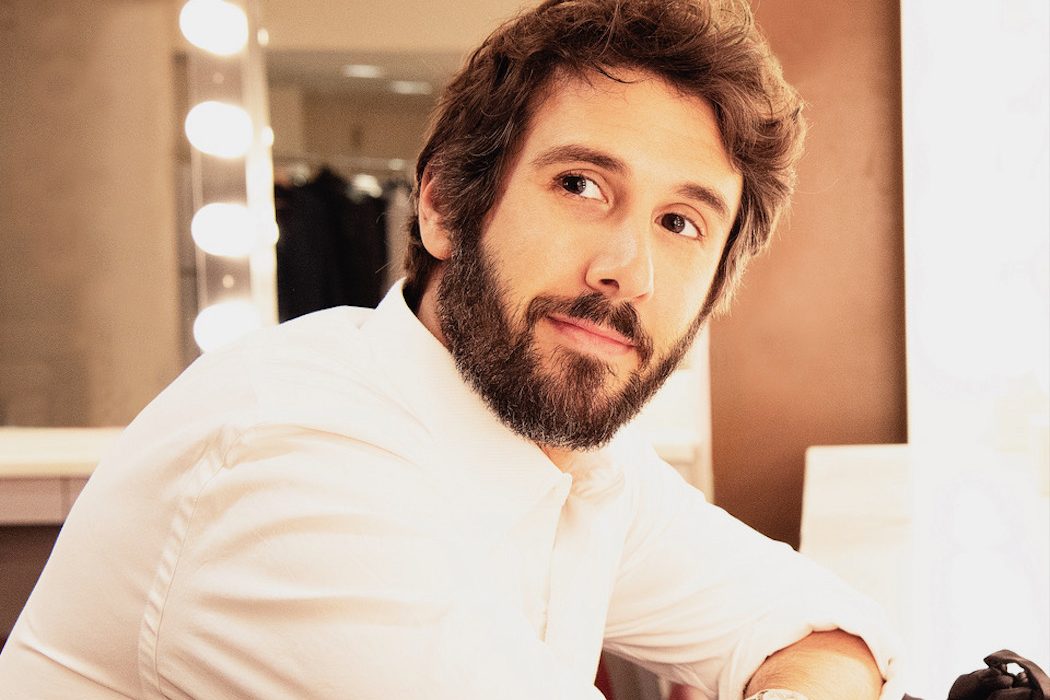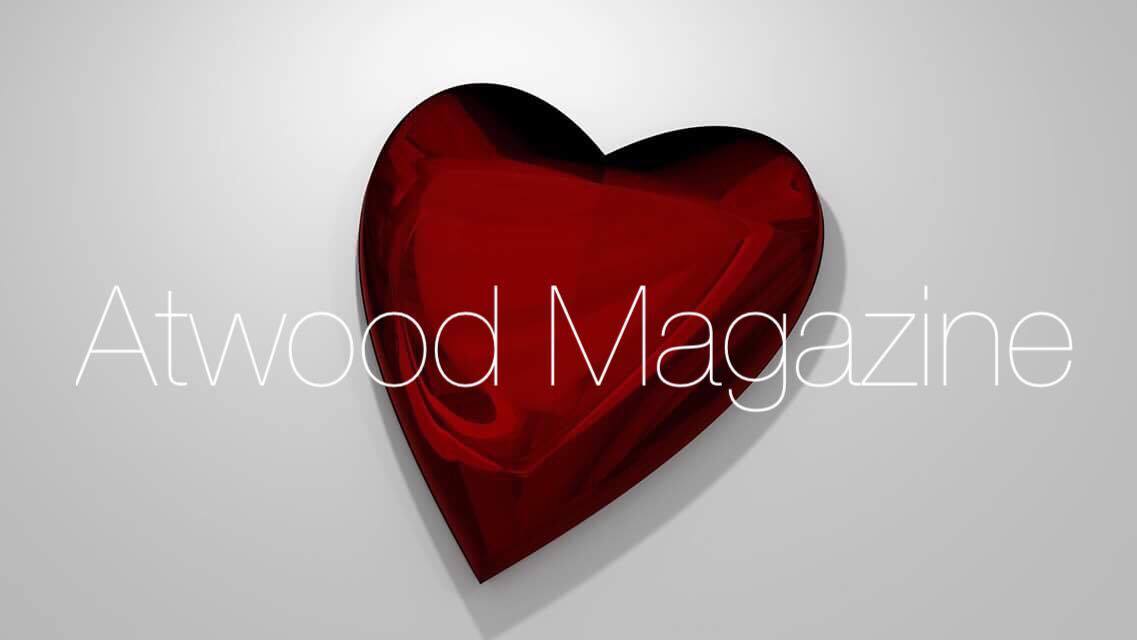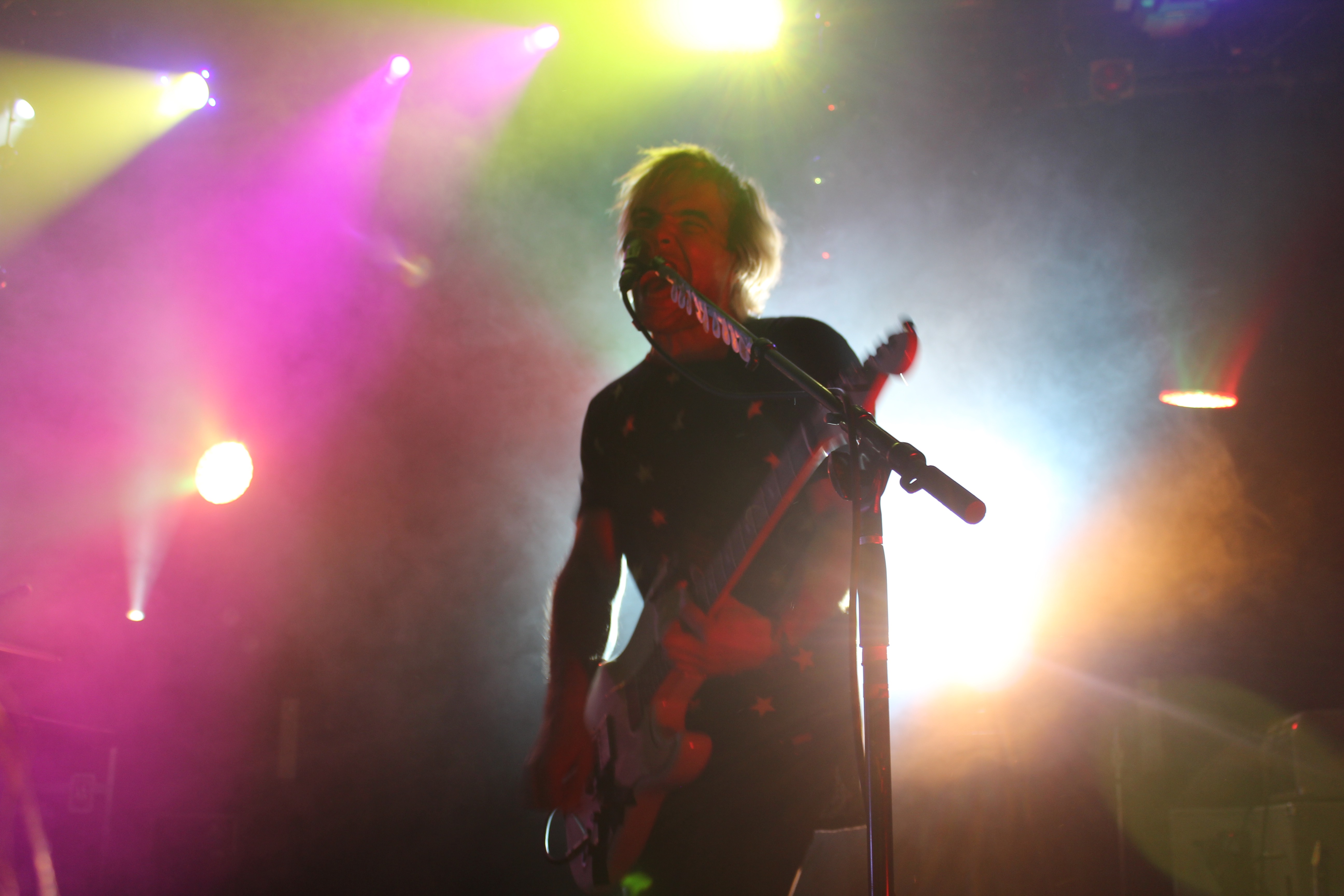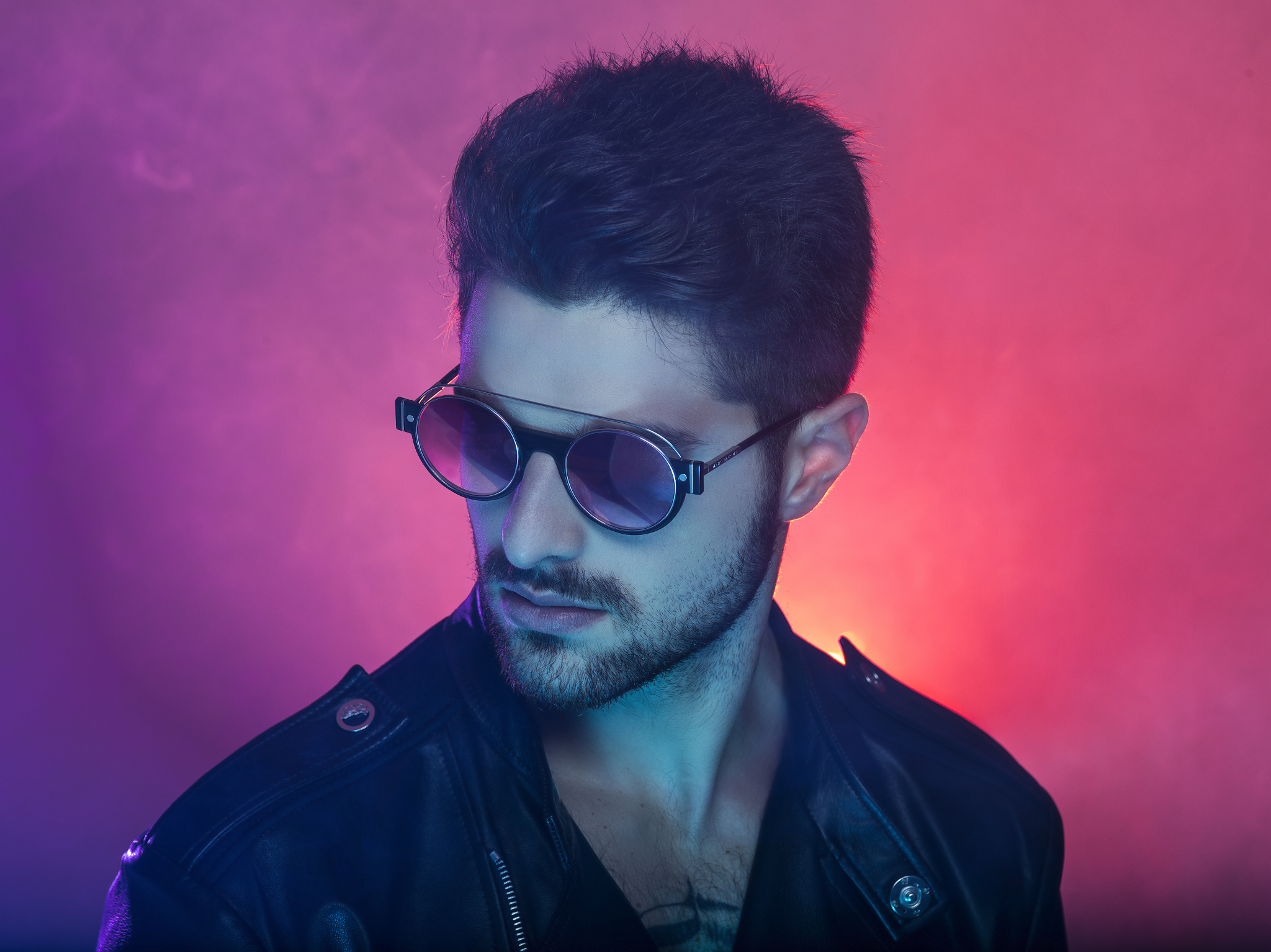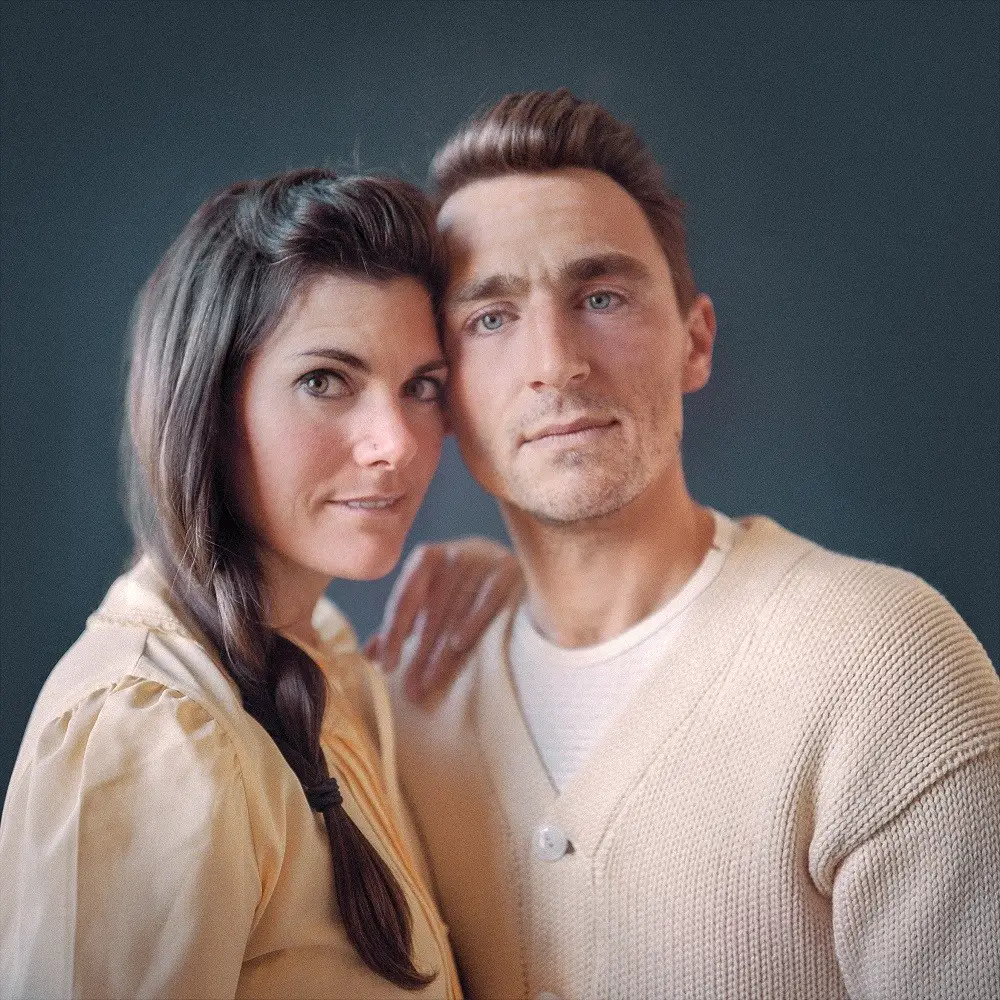Josh Groban‘s latest release, ‘Harmony’, pulls us into the light with heartfelt covers, notable duets, and vulnerable originals.
Stream: “Angels” – Josh Groban
There is a special connection, and sharing that with an audience is why I love duets, because of all of the listening: Because you can take your genre and take someone else’s world and create something together that you would never have done by yourself.
If you have ever been fortunate enough to experience Josh Groban in concert, live or virtual, you know that he is more than just a superbly golden throated crooner. He always makes sure to have fun with his audiences. Regular Q&A sessions have long been a part of Mr. Groban’s repertoire but the best feature of a Josh Groban show, apart from his own singing, tells a lot about his nature. See, part of Mr. Groban’s origin story includes, being given a chance to stand in for Andrea Bocelli at a rehearsal with non-other than Celine Dion. Needless to say, he brought it, and fame ensued.
Now, as a gesture of pure and grounded karmic kindness, Mr. Groban invites amateur singers to join him in song, onstage, in front of thousands of supportive fans. It is pure goodness. Refreshingly open, generous, funny and comfortingly down to earth, goodness.

It makes total sense then, that his upcoming album is called Harmony (11/20/20). Of course referring to the fact that Harmony, like much of Mr. Groban’s career, is a shining example of how wonderful words can sound when shared between tuned in partners. Together hitting different notes that complement the other’s expression.
The harmony of this album also refers to the unbelievable feeling of peace and calm that these songs, projected through Mr. Groban’s resonance, brings to its listeners.
When mapping the journey of Harmony, Mr. Groban, “wanted to go back to basics, and interpret songs that make him feel good, are a blast to sing, and most importantly, are songs that fans have asked for.” So, from its inception, Harmony was built to smooth our ruffled feathers, quiet unsettled minds and bring us a warm blanket at the end of a long, cold day.
And that would have been wonderful enough.
But then our world unraveled, leaving us grasping for sanity. Waves of fear and horror crashed all around us like a relentless tragedy cannon. The COVID-19 pandemic, crash, hundreds of thousands alone, sick, dying or dead, crash, the hateful and disgusting murders of George Floyd and Breonna Taylor, crash, the fall of the stock market, crash, the stress of a (way too close) US Presidential election, crash crash crash. And that’s not even the end of the list.

Our world community has been left absolutely weary and in desperate need of peace, positivity and healing.
In the words of Nobel prize winning author, Toni Morrison, “This is precisely the time when artists go to work. There is no time for despair, no place for self-pity, no need for silence, no room for fear. We speak, we write, we do language. That is how civilizations heal.”
So in the spirit of Ms. Morrison’s sentiment, with his album recorded and complete, Josh Groban set out to begin helping the healing process of our nation, lending his voice in virtual concerts, projected to the thousands in need of swooning, comfort and levity as they dealt with loss, fear and uncertainty.
And while there will, inevitably, need to be many different salves to heal our collective sores, time with Josh Groban and his upcoming new album, Harmony, is a very good addition to our first aid kit for the soul.
Listening to Harmony feels like systematically soothing different stressors one track at a time.
For example: When Mr. Groban sings his version of “The World We Knew (Over and Over),” originally recorded by Frank Sinatra in 1967, we hear validation for our nostalgia of a simpler, safer time and gain company in our quarantine induced loneliness.
Over and over I keep going over the world we knew
Once when you walked beside me
That inconceivable, that unbelievable world we knew…
In Mr. Groban’s possession, “The World We Knew (Over and Over)” becomes more than a song about heartbreak, gaining the additional message of solidarity and support. Letting us know that we aren’t alone in our loneliness.

On the third track, a cover of “Celebrate Me Home” off Kenny Loggins’ debut solo album, Mr. Groban offers listeners another tool for combatting loneliness. This time, prescribing music to pull us back to the sunny side.
Play me one more song,
That I’ll always remember,
And I can recall,
Whenever I find myself too all alone,
I can sing me home.
But it isn’t until the fifth track, on a song called “Your Face,” that we finally get a taste of Mr. Groban’s songwriting prowess. “Your Face,” the first of two original songs on Harmony, invites us into Mr. Groban’s central processing unit.
And we’re so connected but never more alone
We tell the world that we’re special from the filter of a phone
I gotta be open cause life’s meant to be shared
But how can I be my truest me when I’m so scared?
His words, vulnerable and clear, are so completely relatable to us all at this point in the pandemonium.
Well, I believe in all of us
I won’t let this go to waste
I want someone I can touch
I want something I can taste
Holding on to what we must
The light ahead so hard to chase
But there is hope in all of us
And I can see it on your face
On your face (I can see, I can see)
After months of virtual birthday parties, virtual classes and even virtual dates, who doesn’t want someone to actually touch…something to actually taste? We all do.
Every single track on Harmony is rife with contemporaneous meaning. From Mr. Groban’s covers of Sting’s epic “Shape of My Heart” featuring Leslie Odum Jr., Joni Mitchel’s “Both Sides Now” featuring Sara Bareilles, Charles Aznavour’s “She,” Robbie Williams’ “Angels,” Ewen McCall’s “The First Time Ever I Saw Your Face,” Elvis’ “It’s Now or Never,” Bonnie Raitt’s crushing “I Can’t Make You Love Me” and Mr. Groban’s final original contribution, “The Fullest“ featuring Kirk Franklin, there is not one song on Harmony that is merely holding a spot. Every song counts.
Still, something special happens, perhaps because we have just (sort of) wrapped up a very stressful US presidential election, when Mr. Groban ebbs and flows with, “The Impossible Dream” from the 1965 Broadway musical, Man of LeMancha, written and composed by Mitch Leigh and Joe Darion.
These words, Don Quixote’s explanation of his quest, paired with the suave power of Mr. Groban’s voice is a beautiful sentiment, setting the scene for when good organizes itself against evil. Pointing a weary yet persistent sword towards a better, more honest and healthy future. A future that is only possible if everyone shrugs off the haze of lazy complacency and unites in powerful solidarity, no matter what.
This is my quest
To follow that star
No matter how hopeless
No matter how far
To fight for the right
Without question or pause
To be willing to march into Hell
For a heavenly cause
Most notably covered by the likes of Frank Sinatra, The Temptations, Cher, Sammy Davis Junior, Liberace, Roberta Flack, Luther Vandross, Aretha Franklin and the list goes on. It’s clear that the message of “The Impossible Dream,” is not so impossible after all.

Take a listen and triumph in good company to Josh Groban’s Harmony. It definitely delivers two happy ears filled with just that.
Also, rest assured that Mr. Groban will be continuing to perform virtually via livestream concerts on Thanksgiving Day, November 26th and his first full length holiday concert on December 19th. As in all of Mr. Groban‘s concerts, these promise uplift, joy and celebration.
Atwood Magazine had the distinct pleasure of spending some virtual time with Mr. Groban, between virtual performances. Read on to find out his favorite methods for beating stage fright, his opinion on arts education, and, most importantly, how he chooses his next duet partner.
I think we’re all trying to find new inventive ways to connect with each other through art and through music. I am inspired by how willing everybody is to go on this hard journey, even if it’s not a perfect one.
— —
:: stream/purchase Harmony here ::
A CONVERSATION WITH JOSH GROBAN

Atwood Magazine: Well hello Mr. Josh Groban! How are you? I will say right off the bat that you are one of the best people to research, because there’s so much to find. However, you’re also one of the worst, because you are everywhere … there is no end! You’re on Ellen, you’re singing with Celine Dion, Beyoncé, Andrea Bocelli, Sarah Brightman, Charles Aznavour... You’re in comedy shows…
Josh Groban: Hello! I guess that’s what happens when you’re in the business for decades…
How do you do it all? There is Josh with the long curly hair, Josh with the short curly hair, clean shaven… with a beard.
Josh Groban: Oh man… Which Josh should we talk to? I am very lucky… I’ve been able to have a very nuanced and wild career! Lots of great experiences, duet partners, hair styles and lengths! I’m thankful for all of it.
You know what was one of the best Josh Groban duets that I discovered? Your improvisation with Reggie Watts on Comedy Bang Bang! I loved it because, you were able to flow with him seamlessly, eventhough the music you were creating was not your typical genre. I felt like I could see you thinking, “OK, I don’t really know what I’m doing but what if I try this...” And through trust and confidence in your improv ability, you were really able to flow with it.
Josh Groban: Well, thank you. I’m glad you liked that! Of all the many things on the internet you could’ve found, I’m glad that you pointed out that one! That was actually a really fun day. It was great to riff comedically and work with Reggie on that sketch. I love doing that, putting myself in situations where I feel a little bit like a fish out of water. I learned some things, and that scary improv muscle kicked in and it became very sink or swim. Like, this could really suck and so, you gotta dig yourself out. And actually, some really fun things came out of it. I try to find as many of those little moments as I can to keep myself out of the comfort zone. And Reggie is just so brilliant, it’s fun to just create with him.
I can really appreciate that. In my own background, while I have an undergrad in creative writing, I also have a degree in dance (I was going for all the lucrative professions). The improv muscle is something I really understand. As I was watching you, I thought to myself, this is risky, he could either completely fold or rise to the occasion. And you rose so brilliantly. It was really fun to watch.
Josh Groban: Well, hot tip: It was in fact online so, if I had completely folded, it probably would not have been there for you to research!
Fair point. But they didn’t have to hide anything!
Josh Groban: I’m so glad you got to do dance along with your writing. I’ve found that incorporating a different kind of performance art into another, for me anyway, opens up all kinds of similarities and inspirations that you don’t ever expect will be there.

It’s interesting that you say that. I agree. See, I don’t dance anymore because I was diagnosed with Multiple Sclerosis 10 years ago. One of the ways I’ve learned to live with it is by dancing with words to music. Through my writing to and about music, I’ve been able to feel fulfillment as a creator. There really is a connection, in my artistic mind, between dance and writing. The idea of creating something from nothing, flowing word choreography – feeling and thinking to music while using words as movement. And, combining these two art forms in undergrad, really did train me to write this way because I was learning the two disciplines at the same time.
Josh Groban: It’s all connected. One side of the brain is working on the dance and movement while the other side of the brain is seeding so many other things at the same time. Have you ever read any of Oliver Sacks‘ work? There’s a book I think you would really love called Musicophilia: Tales of Music and the Brain. It’s about how music/art and the brain coexist.
I heard someone giving a speech, and he was speaking absolutely perfectly. He said,”I’m actually not speaking to you right now, I’m singing.” What he meant was that he had a stroke and one of the effects of the stroke was that he lost the ability to speak. And he transitioned the part of his brain that couldn’t speak to the part of his brain that could sing because he could still sing. When he sang his favorite songs it all came out fine. He just couldn’t connect the part of his brain that controlled speech to the part of his brain that was thinking the thoughts. So he retrained himself to sing in a way that sounded like speaking and it enabled him to communicate. It’s fascinating.
That’s amazing.
Josh Groban: I could talk about this stuff forever. I’m so sorry about your diagnosis, however it seems like you’ve figured out ways to incorporate your inspiration…. ways to dance with words. Keep doing the brilliant work!
Thanks. I mean as an artist, you have to figure out ways of continuing to be productive. Ways to continue creating, otherwise you’re going to shrivel.
Josh Groban: Thanks for sharing that with me.
Of course. Thanks for listening. So, as opposed to your last album, Bridges, which was made up of mostly originals, out of the 12 tracks on Harmony, two are originals. How differently does it feel to release original work, versus covers of classics?
Josh Groban: In some ways, it’s actually scarier to record classics and release songs that people have loved for a very very long time. I am always my own harshest critic when it comes to whether or not I should sing a song. I generally have to go through a maze in my own mind about whether or not this song is right for me… Am I going to be able to do it justice? Does anybody else need this song or want this song? So it takes a lot for me to actually find myself with a microphone singing an arrangement. Sometimes it’s actually a great arrangement that convinces me. When I’m writing, it is so personal. I know it’s the only version of that song that exists. And there’s a vulnerability to that, that’s scary. I obviously want people to connect to the songs the way I connected to it when I was writing. And so the criticism of a personal song is harder for me than a criticism of a cover. But at the same time, from a vocal standpoint, it’s just telling a story. When I choose songs it all comes down to telling a story.
Whether I’m writing a song or recording a classic, it’s got to be something relevant and powerful in my own mind: Something that feels really good to sing. And honestly, by the time I’m on stage doing a full concert, transitioning from a song that I wrote to a song that I didn’t write, all carries the same weight for me. It all carries the same emotion for me. It’s always a really nice feeling to… Especially when you’re writing about things that are more vulnerable. I wrote a song called “River.” For me, it was about tackling anxiety, depression and taking baby steps to get yourself out of those things. And just daring to be a little less guarded about those struggles and trying to be inspirational in ways that were a little bit more tapping into some stuff that, for a very long time, felt like a weakness or a vulnerability to me. The nice thing about when you write a personal song like that, and I would say that some of the songs on this album fit the bill as well, where you’re writing out of the necessity to express yourself and get something out of your system in the same way that you would use a journal entry or something like that. You wind up connecting with people who really felt very connected to themselves because they heard your song. Because when you’re experiencing the human condition, and you’re experiencing the same things as someone else, that’s something that is amazing about a personal song. As Rick Rubin put it with me, it’s the difference between a song coming from me and a song being presented by me as a vocalist. That differentiation can really be wonderfully powerful.
Whether I’m writing a song or recording a classic, it’s got to be something relevant and powerful in my own mind: Something that feels really good to sing.
Listening to you singing covers feels like you have taken the songs in, made them yours and then you’re letting them out. It still sounds so personal. And as much as I love so many of the songs that you cover… I mean “All I Ask of You“... I actually try not to listen to it too much, because it breaks me down. I am so… I was lying in my bed the other day with my older daughter and, she noticed I had been crying… So I said to her, “Want to hear the song that made me cry?” She dutifully nodded with love. So I played it for her as we laid in my bed. As I quietly wept, letting your voice sweep me away, she listened carefully and thanked me for sharing with her such a beautiful song. As we were listening to it through our Amazon echo, it started to repeat.
“We have to turn this off!” I groaned, “it’s breaking me.” So we let out a big “Alexa off“ but she kept playing it… And then we realized that it was being played on all of the echo devices around my house. But even when we turned them all off we could still hear the song… And realized that, at a pretty late hour, we were blasting “All I Ask of You“ in the backyard! I’m sure my neighbors were thrilled.
Josh Groban: And you were like…“ Alexa, all I ask of you is to stop playing “All I Ask of You!”
Haha, exactly! I will say also, as much as I love all of the covers that you do, one of my favorite Josh Groban songs is an original. I love “Granted.”
Josh Groban: Oh! I’m so glad you like that song, thank you.
In your career you’ve done so many wonderful amazing duets with so many awesome people.
Josh Groban: I’ve been very lucky.
I have always wondered this and I wondered about all singers. When you’re singing a duet with someone, and you reach that crescendo together… And the whole audience is like *gasp,Swoon,sigh* when you look into each others eyes, it really feels like you’re in love.
Do you actually feel, even just for that moment that you have fallen in love with that person?
Josh Groban: Hahahah!
Because we all feel that! We’re like, now Josh is in love with Beyoncé!
Josh Groban: I mean; I am in love with Beyoncé. Who is not in love with Beyoncé? I kept glancing over at her and thinking “Groban, don’t fall too in love with Beyoncé.”
Well yes. There is a wonderful connection that happens when two people sing together. I don’t know if it winds up being a romantic connection but… It’s a dance. As a dancer you know that you need to have a connection with somebody in order to create something that’s going to move people. To have each other’s back in that way through a song… There is so much listening involved in a duet. I’m sure it’s the same in dance as well. You’re so in tune with what the other person is doing, how they’re moving, how they’re singing, where the lyric is going. I think that the moment you’re talking about is when you become so locked in with the other person‘s musical soul. That may cause an emotional, or romantic reaction from the audience.
We’re all swooning.
Josh Groban: Because the music is so beautiful and it is so powerful. You feel so lucky in those moments to be able to sing with people who help… you’re reaching another plane together. So there is something special and spiritual and amazing about that moment. And so, for me, even if it’s not a romantic thing… There is a special connection. And sharing that with an audience is why I love duets, because of all of the listening. Because you can take your genre and take someone else’s world and create something together that you would never have done by yourself. Then there’s an audience to witness that and it’s scary, and it’s invigorating all at once. Like love!
Yes. It was actually hilarious to me and awesome at the same time to watch your duet with Ellen. Because, well, Ellen is not a singer, obviously and she was kind of wavering around…
Josh Groban: Don’t tell Ellen that, haha!
You’re right, I’m sorry Ellen! She was wavering around a little but you were locked into her voice no matter where she was. You made her sound awesome. The performance actually had that magnetic lock in at a few moments where I thought: wow they actually sound good.
Josh Groban: That’s an example of one of those duets with the added rhythm of comedy, so, you have a lot of beats going on in your head. There is no more challenging duet, than a comedy duet. Because on top of trying to match each other in every moment, you also want to make people laugh. When I sang with Sara Bareilles on the Tony Awards, and we were singing all those funny songs… You have to find out what works together and you’re the only ones in the spotlight to do it. I love all duets, funny and serious.
When you call fans on stage in the middle of a concert to sing with you… Those are thrilling duets to watch.
Josh Groban: Those are also terrifying duets…
How do you choose who gets to come up and sing with you on stage?
Josh Groban: It’s just a feeling. Someone who raises their hand. Generally the person that’s most enthusiastic when I ask them to sing, is the person who has something prepared. Something they’ve been waiting to sing their whole life. Sometimes, I go with that person, and sometimes I’ll go with the person who is shy. I was the shy kid in high school. Sometimes, when you pick someone who is a little bit shy, something extraordinary happens.
More times than not, generally the person who is really really excited is usually more than a little bit off key. That’s the real test, because then you have to lock-in with a total stranger. Audiences like that. I like that… When you walk the tight rope and do something that might fail. I always try to incorporate enough of those moments into my shows to keep things a little on edge, because there is so much that is very rehearsed for shows. I wanna go in there and change it up.
There was one little girl that you picked out of an audience in Wisconsin. I think her name was Anastasia. She was so nervous. She was like a walking brick of fear. You handled her so well and she came out with such a rich tone in her voice. It was amazing to watch her really hit every note perfectly.
Josh Groban: Was that on YouTube? She’s actually gotten a lot of use from that. And has continued her singing career, which is amazing. And you never know when it’s going to happen. Someone who is so unassuming can have a really great instrument.
It was really such a beautiful moment. When she came out with such a beautiful tone. It was amazing.
Including the moment that you were discovered singing “The Prayer” with Celine Dion, there have been times in your career that you’ve performed tremendously well under pressure… I was watching The Power of Music, a reality show on which, you mentored a singer named Jen Malenke, as she recorded “Bridge Over Troubled Water.” On the show, throughout the recording process Jen really grappled with performance anxiety. It’s something that all artists and performers grapple with throughout their lives. I feel it as a writer too. Hey, I feel it right now!
Josh Groban: You’re doing a really Great job.
Thanks so much Josh. You’re making it pretty easy!
Josh Groban: You were trained as a dancer! You perform well under pressure.
I wish I always did – if I’m with the right people! What’s your advice to artists when they’re performing and they don’t want to dissolve into nothingness under the pressure.
Josh Groban: I started to learn, a little late in my performing life, how to handle that kind of pressure better. I was always able to get through it but I would always give my really nervous high-pressure performances a B minus. I would always come off stage and feel like I did enough but I didn’t do as well as I knew I could’ve done if I didn’t care more. It feels weird to say, but sometimes I felt like if I didn’t care so much I could’ve done better. It’s such a weird way to psych yourself out. And so often for those of us that reach a certain level of recognition, it’s because we care. So that’s the dichotomy. It’s that we care so much about something and it hinders our performance at the same time. So what I’ve learned from experience is how to channel nerves into an excitement: Into an energy to do well. And the way I did that was to understand that so much of nerves is the fear of the unknown. Not knowing if it’s going to go well… Am I going to hit the note…. Am I going to do the job that I know I want to do?
And the worst time for stage fright is not actually when you’re on the stage. It’s backstage right before you’re about to go on. It’s when someone says, “15 minutes Mr. Groban…“ The world, and how you view yourself for the next however many days is going to revolve around these next few hours. And so, when you can’t yet control it, there are 1 million things going on in your head about how everything could go wrong. The thing that I’ve learned to do is, take comfort in the control. Once I step foot on that stage all of those nerves about what I don’t know, are suddenly off stage. I am on stage now, and I can absolutely control what’s going to happen. I have the choice in this moment whether or not I’m going to have confidence and feel good and go for the note and sing the songs and have fun. Or if I’m going to be uncertain about what’s going to happen. So, I view performance now as taking the reins. I can undo whatever worry I was having off stage by actively deciding to.
There have been moments… I was playing Hyde Park last year and I’m looking out at 100,000 people, which is a very very large crowd for me. I was off stage like, “Oh my god what am I doing? This could be the worst moment of my life.“ Then, once you’re out there you say to yourself, I am in this, I am here, I can control this, I can control my voice, I can control how I sound, I can control whether I feel it and really have fun up here. It really comes down to deciding to take that control. I would say to anybody that is grappling with those things, it’s healthy to be nervous because it means you care. So don’t say to yourself off stage, “I’m gonna be a crappy performer out there because I’m nervous.” No. Every brilliant performer on the planet is nervous before they go out on stage because they care about what they do. Because they want to do a good job. When you stop getting nervous, pack it up. What differentiates those who can hit the buzzer shot versus those who take the nerves on stage with them, which I did for many years, is relishing and enjoying the control of the moment. I can make this shot, I can sing the note, I am going to take control and do a great job. And even then you’re not always going to do it, and that’s OK. It’s a muscle that you need to build to decide that you’re going to take the reins. And honestly, have fun. When I was a senior in high school and feeling nervous, my voice teacher used to always say to me, just think of the words. Just tell the story, you know and let the words do the rest. You have to find ways to simplify it in your own mind so that it doesn’t get too complicated.
What I’ve learned from experience is how to channel nerves into an excitement: Into an energy to do well.

I think, for me, I found that there’s always a moment where I lock into where I’m gonna start and then it just flows from there. My plan with you today, was I was going to call you and say “Am I too late for Josh Groban’s poker game?” (a reference to when you were on the Kelly Clarkson show.)
Josh Groban: Haha, that’s a great opener!
And I thought, “OK good that’s where I’m gonna start, and it’s gonna be funny and he’s gonna laugh and then I can go from there.” Then, I didn’t end up doing it because we had a miscommunication about the timing of our interview…
Josh Groban: No but you nailed it. You know what? You didn’t even need to say it because in your mind you had a pillar of something you knew that was going to get you started on the right track. And just knowing that you had it, meant you didn’t actually need it anymore. You actually brought up a really good example that I can tell people off stage. Have those little pillars for yourself. Something that you know you wanna open with. Something, a story you know you want to tell, a song you know you can crush. And just keep trying to make your way to those pillars, if all else fails. And just knowing you have them, nine times out of ten you won’t even need them. You just helped me give a great piece of advice!
Yay! I appreciate your advice. And as you’re giving it, I’m thinking of a monkey swinging from tree to tree, brachiating and that’s what it is.
Josh Groban: Beautiful. Who wouldn’t want to think of that? I’m going to think about that on stage now because it just makes me happy.
You can give me a shout out. I’m thinking of monkeys on trees, thank you Ilana!
So, in one of the questions that was asked of you on stage was, “If you could choose any singer to sing with dead or alive who would it be?“ You answered, Bob Marley. And I love Bob Marley too, but he’s not the kind of singer that I would place you with. I was just curious, why Bob Marley?
Josh Groban: Well, first of all, I think it would’ve been a really fun studio session. I think we would have had a really good time.
So maybe selfishly I felt like that would’ve just been a fun day in the office. I also really enjoy singing with voices that are very different from mine. People with different backgrounds than mine. My favorite duets are the ones that are unexpected, where I’m inspired by the person but, I don’t really know off the top of my head how our puzzle pieces are going to fit, you know? I sometimes just enjoy the discovery of that. If your hearts in the right place and your message is in the right place,, I enjoy that performance or session like that even more ways then when I know the voices are going to blend perfectly. And so I just said Bob Marley because I love his message and his voice. So I think to myself that would be something that would be both fun, and challenging. And it would be so exciting for me. It checked all the boxes. Plus I love his voice.
Bob Marley really did have a beautiful voice.
Josh Groban: I enjoy personality more than perfection. I love a unique voice more than a perfect one.

So now that we are in this weird place in our world with COVID-19, how are you going to go forward with this album and promoting it? What’s gonna happen with your shows?
Josh Groban: Well, we’re not gonna go in front of an audience until it’s safe. Whatever that means and whenever that means. But in the meantime, we’re doing everything that we can. And the good news about an album is that people can listen to it personally in quarantine safely. So it makes me happy that I can have something out there, that I put my heart into, for people to enjoy in their own personal space.
As far as performing goes, the livestreams have been an interesting experiment that’ve turned into something really fun and exciting. I’ll keep doing those as long as we have to, because it’s still fun to connect that way. And I’ll keep writing. We’ll keep doing what we can, from wherever we can do it. I think we’re all trying to find new inventive ways to connect with each other through art and through music. I am inspired by how willing everybody is to go on this hard journey… even if it’s not a perfect one.
So at some point, when we do get back to a time when we can do things exactly the way we would like them, I won’t ever let go of, or forget all that I learned from this process. When we all had to do things this way. And in some ways, even though it’s been really difficult, it will probably be one of the most meaningful ways to release an album I’ve ever had.
I’m with you on that. This really has been so extremely intense. Thank you so much for taking some time out of your schedule to speak with me. I applaud all of your efforts to bring peace and happiness to your listeners around the world and I know they appreciate it to.
Josh Groban: It really has been, and will continue to be my pleasure.
Every brilliant performer on the planet is nervous before they go out on stage because they care about what they do. Because they want to do a good job. When you stop getting nervous, pack it up.
— —
:: stream/purchase Harmony here ::
— — — —

Connect to Josh Groban on
Facebook, Twitter, Instagram
Discover new music on Atwood Magazine
? © 2020
:: Stream Josh Groban ::

